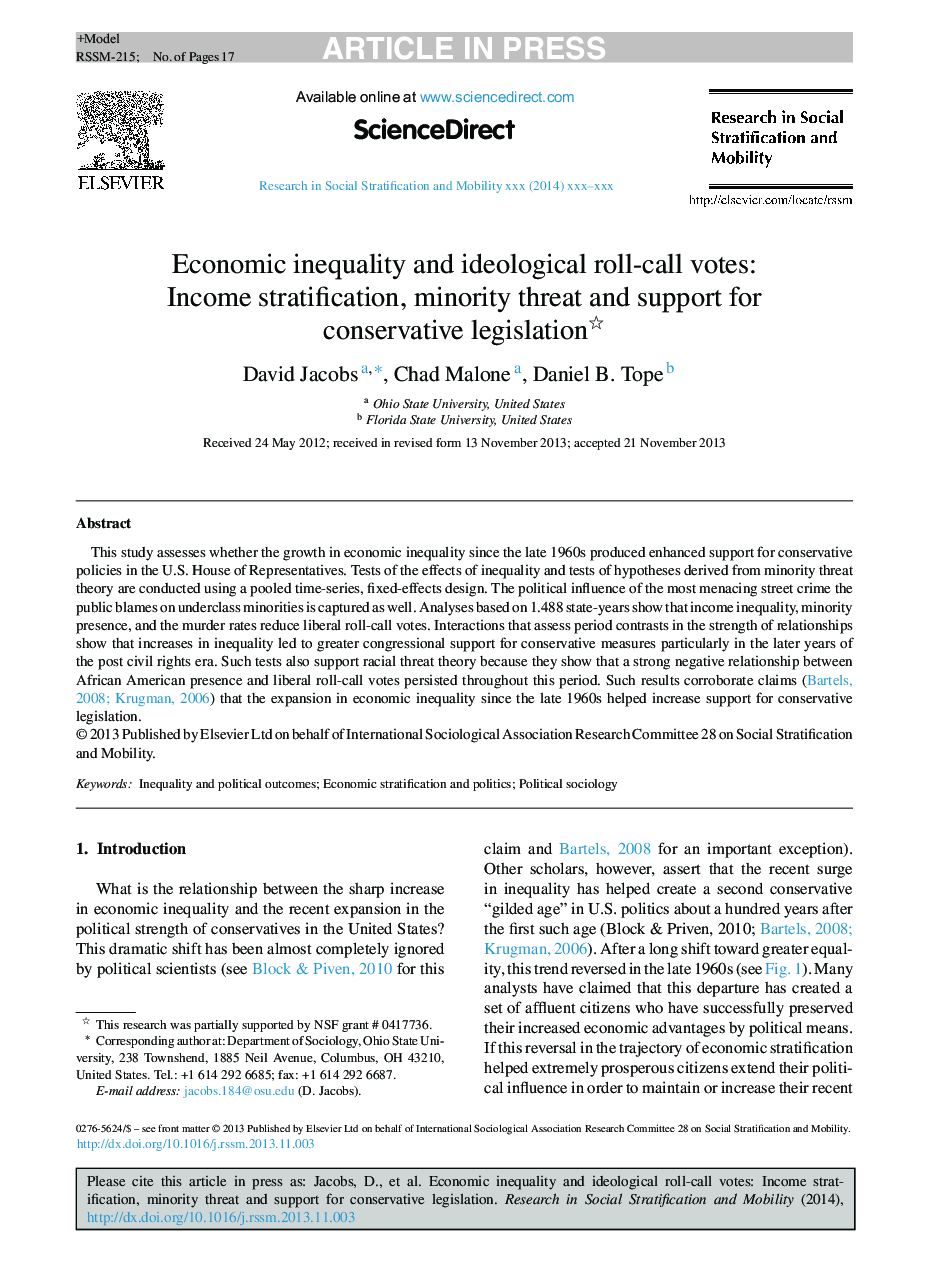| Article ID | Journal | Published Year | Pages | File Type |
|---|---|---|---|---|
| 7410103 | Research in Social Stratification and Mobility | 2014 | 17 Pages |
Abstract
This study assesses whether the growth in economic inequality since the late 1960s produced enhanced support for conservative policies in the U.S. House of Representatives. Tests of the effects of inequality and tests of hypotheses derived from minority threat theory are conducted using a pooled time-series, fixed-effects design. The political influence of the most menacing street crime the public blames on underclass minorities is captured as well. Analyses based on 1.488 state-years show that income inequality, minority presence, and the murder rates reduce liberal roll-call votes. Interactions that assess period contrasts in the strength of relationships show that increases in inequality led to greater congressional support for conservative measures particularly in the later years of the post civil rights era. Such tests also support racial threat theory because they show that a strong negative relationship between African American presence and liberal roll-call votes persisted throughout this period. Such results corroborate claims (Bartels, 2008, Krugman, 2006) that the expansion in economic inequality since the late 1960s helped increase support for conservative legislation.
Keywords
Related Topics
Social Sciences and Humanities
Economics, Econometrics and Finance
Economics, Econometrics and Finance (General)
Authors
David Jacobs, Chad Malone, Daniel B. Tope,
